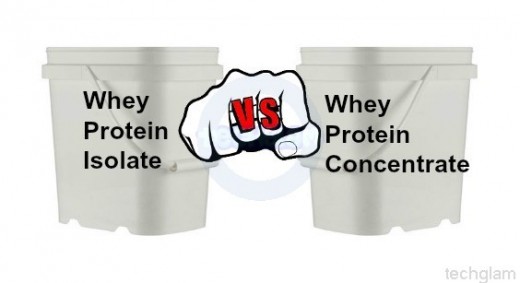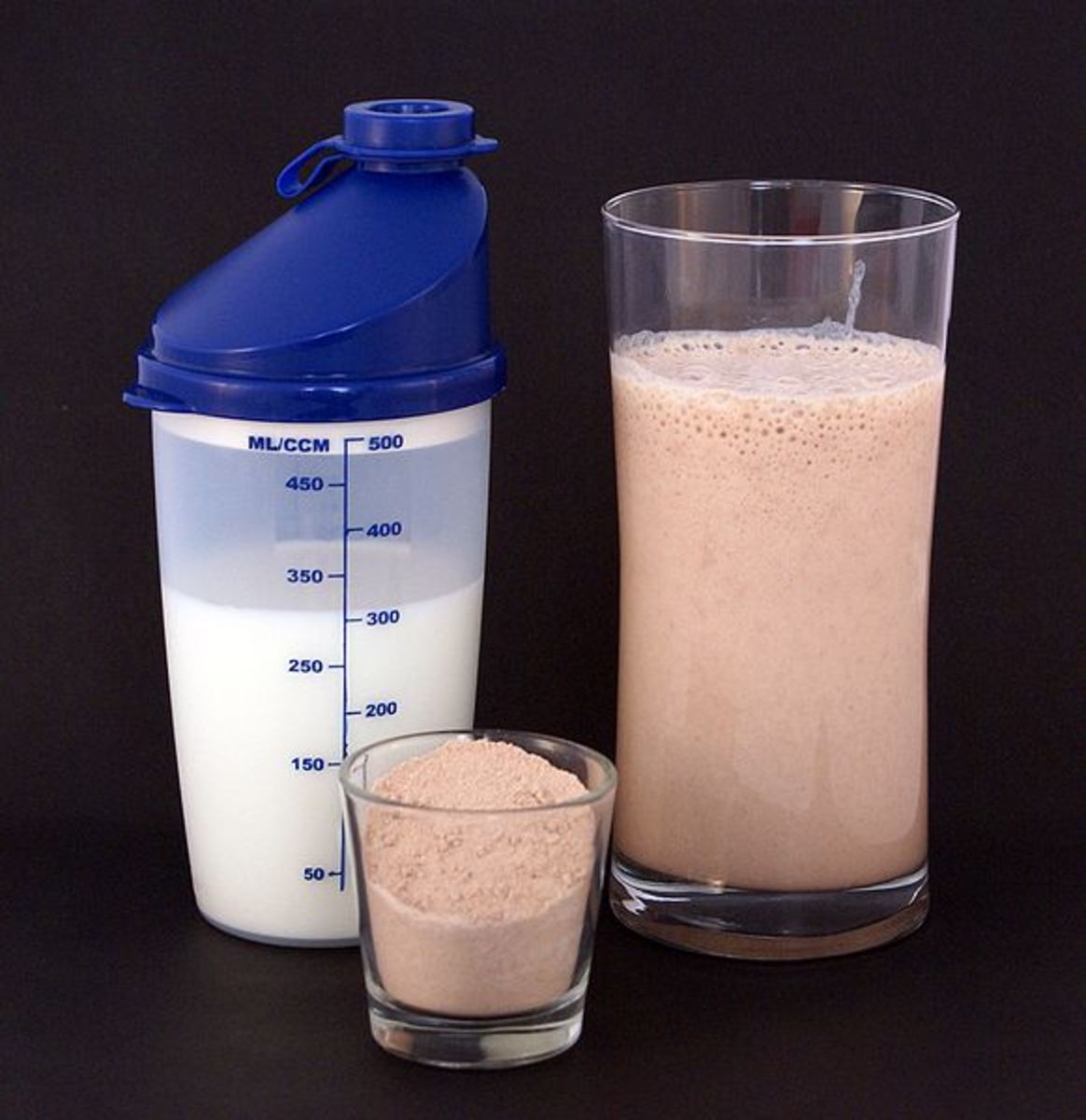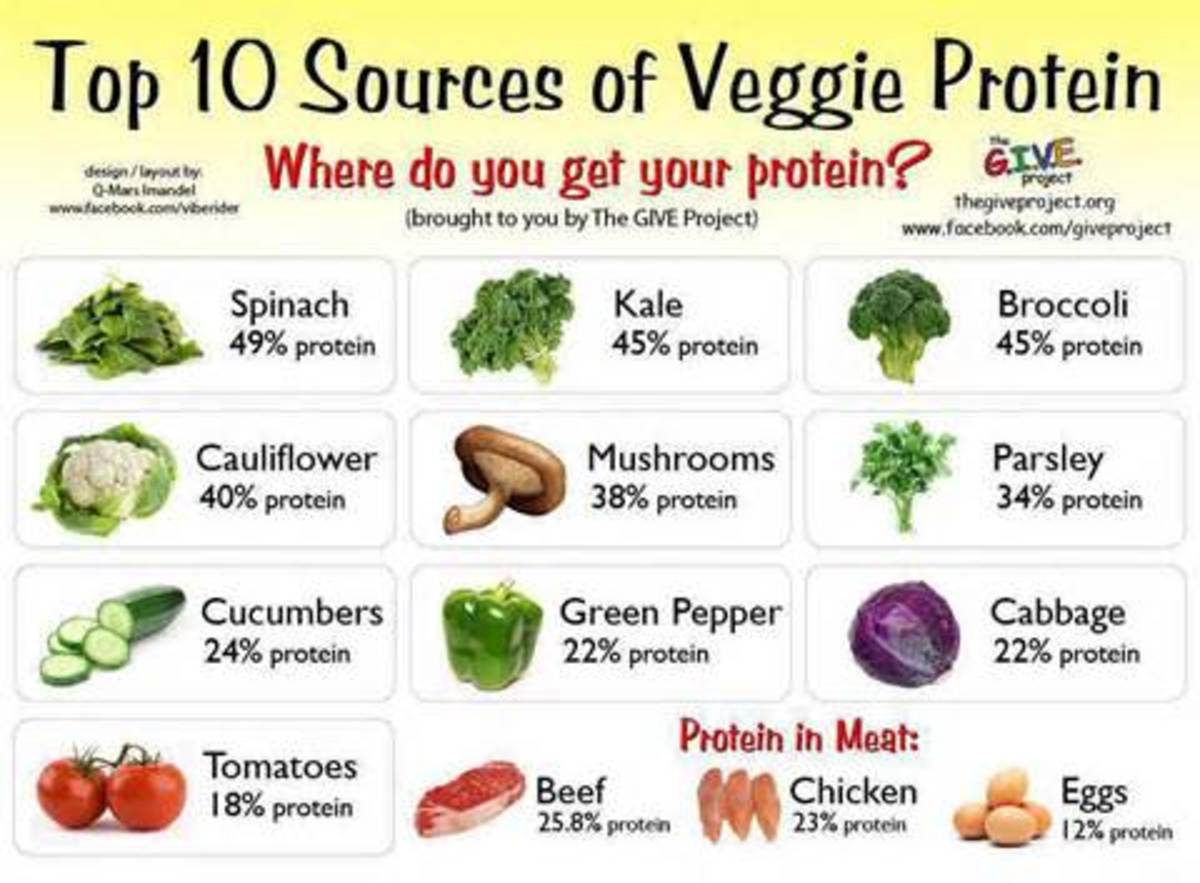Whey Protein: Isolate vs. Concentrate
Whey protein of any kind is by far the most commonly purchased supplement out there, and has been for a long time. There are a few different types of whey protein but isolate and concentrate whey proteins are the two most common. So lets dive deeper into those!

First, what is whey protein?
Whey protein is derived straight from cow milk, so yes it is dairy, and if you're lactose intolerant you might want to stick with a soy or vegetable protein. Anyways, companies take cow milk and break it down to get the more pure forms of protein out of it while leaving in the fats, sugars, and carbs. While the two most common whey proteins are concentrate and isolate, they are very very different in many ways.
Whey protein concentrate
Concentrate proteins are exactly what they sound like, a concentrated version of cow milk. The downfall to concentrate whey protein is that it's not as pure as isolate protein. Concentrate will generally be around 70-80% protein with the remaining percentages going towards fat and carbohydrates, it also tends to not mix as thouroughly as isolate whey does. Concentrate, however it does come at a lower cost and doesn't burn as big of a hole in your pocket.
Whey protein isolate
Isolate is pretty simple, it's just a very very pure form of cow milk and more pure protein than concentrate. Isolate protein usually has around 90-96% protein content in it, which limits the fat, sugars, and carbohydrates content in it. Usually people go after the Isolate protein if they are on a low carb high protein diet to shed fat and lose weight. The only downfall to Isolate whey protein is that it's a little bit more expensive than concentrate, BUT it does mix better and usually tastes better too!

The kicker
Whey protein seems pretty simple to buy now, right? Well not so quick, there are a ton of protein powders out there that are blends of concentrate whey protein AND isolate whey protein, which helps keep the cost somewhere in the middle of both usually. So when buying a whey protein be sure to read the ingridient list and nutrition label on the back so you know you're making the right decision for yourself.
Whey protein isolate
| Whey protein concentrate
|
|---|---|
Protein percentage 90-96%
| Protein percetage 70-80%
|
Mixes better
| May not mix as well
|
Usually has a better taste
| Higher in carbs and fat
|
More expensive
| Less expensive
|
Which type of whey protein fits your needs the best?
Conclusion
In the end the two most common types of whey protein have their pros and cons and they both have their place in the nutrition market. The whey protein isolate will be the "cleaner" of the two, but it also comes with a higher price tag that might not be reasonable to some. On the other hand Whey protein concentrate is still a very adequate way for one to reach their protein requirement without breaking the bank!








